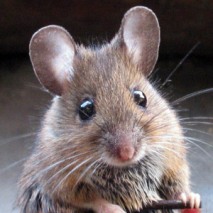Sssssssupper anyone?
The prey:
Bamboo pit vipers are carnivores, meaning they eat only meat
such as lizards or the common
mouse. Bamboo pit vipers produce a relatively weak toxin and because
they grow only about 2.5 feet, they lack the ability to engulf large animals.
Mostly, the Bamboo pit vipers stick to small rodents, reptiles
and amphibians. The young usually prey solely on frogs,
using their brightly colored tails as a worm like baits to the
frogs. As they grow, the snakes switch to lizards and
small mammals such as mice.
 The Hunt:
The Hunt:
Bamboo pit vipers are active mostly at night, when their pit viper organ
gives them a night vision advantage over their prey. To
hunt, a pit viper slithers up to a mouse and strikes at the prey
to inject venom. As the prey runs away, the Bamboo pit
viper uses its pit organs to track the animal until the venom
takes affect and it collapses. The Snake then swallows the
animal whole using the movable quadrate bones of the jaw to open
the mouth wide.
 The Digestion:
The Digestion:
You might think a snake is just one long intestine but a pit
vipers digestive system is very complex! Snakes are
triploblastic, meaning they contain three tissues:
the mesoderm, ectoderm, and endoderm. The
ectoderm makes up the skin of the snake, the
endoderm the lining of the gastrointestinal tract,
and the mesoderm forms the supporting organs such as
the kidneys. This allows for a complex
digestive system. Because snakes do
not chew, their digestive system has to work hard. After a
snake swallows the food, it becomes dormant while it digests
(remind you of anyone after Thanksgiving dinner?). The
food travels down a long throat and stomach, both which are able
to stretch to allow the food to pass. To accommodate for
the large amount of food, the Bamboo pit vipers intestine lining
quickly grows, doubling in size after just a few hours.
With the work of digestive enzymes the food is completely
digested. Because snakes eat such large meals at a time,
snakes can go up to several weeks between meals.
Spreading it through the body:
After digestion, a Bamboo pit viper spreads the nutrients by a
closed circulatory system consisting of a three chambered heart-
two atria and one large ventricle.
Any nutrients that aren't used are stored as glycogen in cells
for later use.